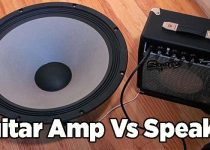Does More Watts Mean Better Sound [The Truth]
In the dynamic world of audio equipment, the question of whether more watts equate to better sound quality has been a subject of considerable debate. Audiophiles and music enthusiasts often find themselves navigating through a sea of technical specifications, with wattage being a prominent figure in the mix.
In this guide, we aim to dissect the relationship between watts and sound quality. Which is exploring the intricacies that define audio reproduction and providing effective solutions to enhance your listening experience.

# Table of Contents =>
- 1 Debunking the Myth: Does More Watts Always Mean Better Sound?
Understanding Watts in Audio Systems:
a) What Are Watts and How Do They Impact Sound?
Watts, in the context of audio systems, measures power. In simple terms, it is the amount of energy the amplifier can deliver to the speakers. However, the common misconception is that more watts automatically translate to superior sound quality. To understand this relationship, we must delve into the complexities of audio reproduction.
b) The Myth of More Watts Equaling Better Sound:
Though it may be tempting to believe that superior audio quality is guaranteed with higher wattage, the truth is more intricate. The relationship between watts and sound quality is not straightforward; factors like speaker sensitivity, impedance, and component quality also significantly influence the outcome.
Factors Influencing Sound Quality:
1. Speaker Sensitivity:
The sensitivity of a speaker is a crucial factor that often gets overshadowed by the allure of high wattage. Speaker sensitivity is measured in decibels (dB) and indicates how efficiently a speaker converts power into sound. A speaker with higher sensitivity can produce louder sound with less power, debunking the myth that more watts are inherently better.
2. Impedance Matching:
Impedance, measured in ohms, represents the resistance a speaker offers to the electrical current flowing from the amplifier. Matching the impedance of your speakers with that of your amplifier ensures efficient power transfer. This synergy is vital for optimal performance and sound quality.
3. Quality of Components:
Debunking the Myth: Does More Watts Always Mean Better Sound?
To dispel the notion that more watts equate to better sound, let’s explore a scenario where a high-wattage amplifier is paired with inefficient speakers. The mismatch can lead to distortion, and clipping, and ultimately compromise the audio quality. Conversely, a lower-wattage amplifier with speakers that have high sensitivity can deliver a clean and powerful sound.
Finding the Right Balance: Matching Components for Optimal Performance:
1. Assessing Speaker Sensitivity:
Before succumbing to the allure of high-wattage amplifiers, evaluate the sensitivity of your speakers. Choose an amplifier that complements the sensitivity of your speakers for a balanced and efficient audio setup.
2. Impedance Matching for Harmony:
Ensuring impedance compatibility between your amplifier and speakers is paramount. Refer to the manufacturer’s specifications and choose components that work seamlessly together. This attention to detail prevents issues such as overheating and distortion.
3. Quality Over Quantity: Investing in Premium Components:
Rather than fixating solely on wattage, prioritize the overall quality of your audio components. Premium speakers, amplifiers, and cables contribute to a superior listening experience. A well-matched, high-quality system often outperforms a haphazard assembly of high-wattage components.
Effective Solutions for Improving Sound Quality:
1. Room Acoustics:
The environment in which you listen to music significantly impacts the overall sound quality. Addressing room acoustics by adding acoustic panels, bass traps, and diffusers can mitigate issues such as reverberation and standing waves, enhancing the clarity and balance of the audio.
2. Equalization (EQ) Settings:
3. Professional Calibration:
Consider enlisting the services of a professional audio calibration expert. These professionals use specialized equipment to measure and adjust your system for optimal performance in your specific listening environment.
The Road to Sonic Nirvana: Balancing Act in Audio:
In the pursuit of audio excellence, it’s essential to approach the watts and sound quality equation with a discerning eye. Rather than succumbing to the allure of high wattage, prioritize the synergy between components, paying attention to sensitivity, impedance, and overall build quality. Remember that a well-balanced audio system, tailored to your preferences and environment, often outshines the raw power of excessive wattage.
Conclusion:
As we unravel the myth that more watts equate to better sound, it becomes evident that the path to audio nirvana is a nuanced journey. Understanding the interplay between wattage and various factors influencing sound quality empowers enthusiasts to make informed decisions.
By focusing on the harmony of components, optimal matching, and thoughtful calibration, you can transcend misconceptions and elevate your audio experience to new heights. Remember, in the realm of audio, it’s not just about the power you wield but how skillfully you harness it for an unparalleled sonic adventure.
FAQs –
Question: Does more watts mean more power?
Answer: Certainly! In the realm of electrical power, higher watts equate to greater power. Watts serve as a unit of power, and increased wattage corresponds to a higher level of electrical power consumption or generation.
Last Updated on November 28, 2023 by Perry Garner


